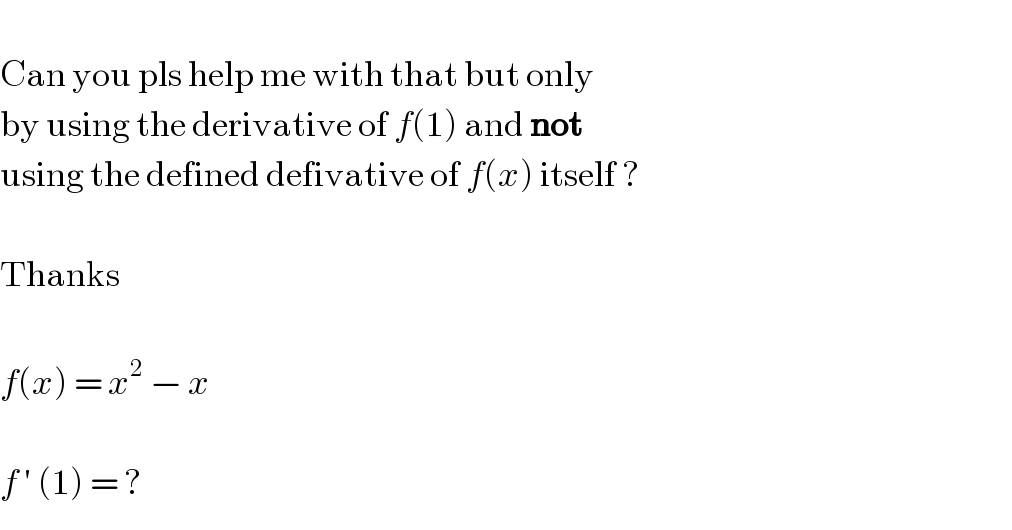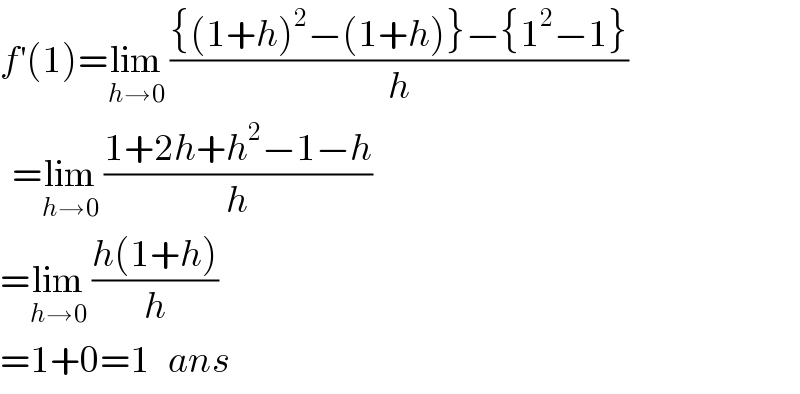
Question and Answers Forum
Question Number 52953 by hassentimol last updated on 15/Jan/19

Answered by tanmay.chaudhury50@gmail.com last updated on 15/Jan/19

Commented by hassentimol last updated on 15/Jan/19

Commented by tanmay.chaudhury50@gmail.com last updated on 15/Jan/19

